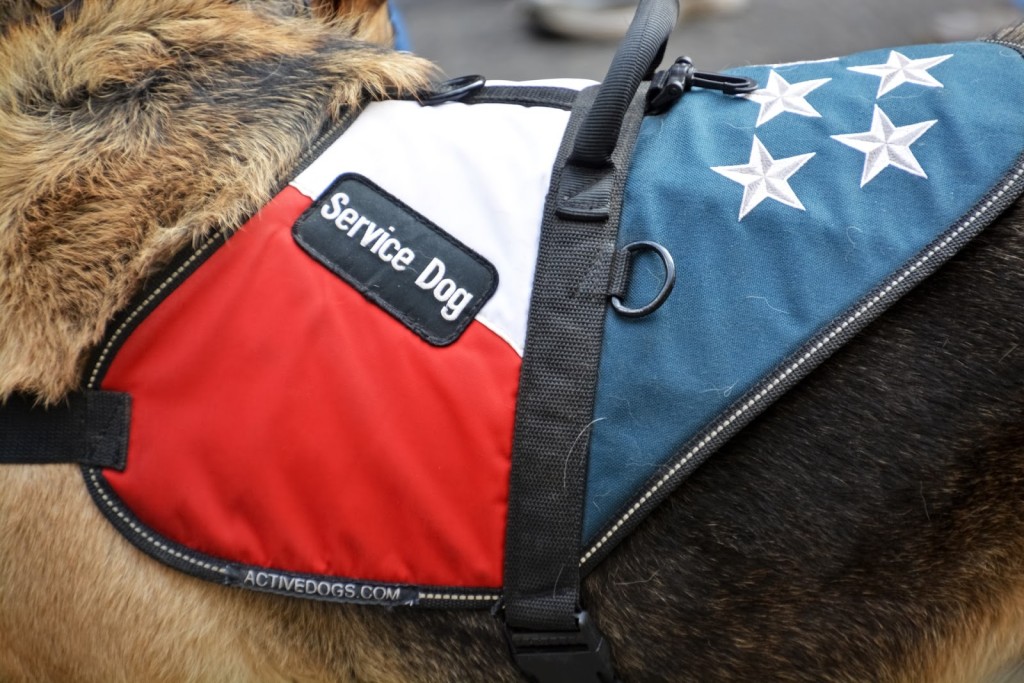Over the years, dogs have been considered loyal and trustworthy companions to people. They’re not just helpful in providing emotional support, but they can also be a reliable working assistant. While some dogs act as loving pets at home, other dogs learn to perform tasks that aid disabled individuals.
You may have seen dogs assisting their owners in public places — they’re called service dogs. These dogs have been serving Americans since the 1920s. Moreover, there’s a law that protects this kind of animal. The Americans with Disabilities Act (ADA) has its definition of what service animals are. Keep reading to discover more facts about service dogs.
1. They Are Not Pets
According to the ADA’s definition, service dogs are not pets. Rather, they are animals that work on someone’s behalf, particularly a person with disabilities (PWD). These dogs are trained to help disabled individuals to function normally in their day-to-day lives. They can perform specific tasks that pet dogs normally can’t, such as guiding or reminding their owners to take their prescribed medications.
2. They Come In Different Types
Generally, they’re all called service dogs but come in different types depending on their training. Here’s to name a few:
- Guiding dog: assists a person with visual impairment or a blind individual.
- Hearing dog: assists people with hearing disorders and alerts them when there’s a sound.
- Mobility service dog: assists with movement, including carrying their handler’s items and pulling or pushing a wheelchair.
- Medical alert dog: reminds a person with diabetes or seizure to take their pills on time.
3. Not all Service Dogs Wear Vests
A service dog doesn’t necessarily wear a vest. Under the ADA’s provision, service animals must wear a harness, collar, or leash to ensure the protection of both the animal and the PWD. While the law requires these devices, some owners prefer not to use them — and they are allowed to, as long as they can control their dogs.
4. Dogs Are Identified as Service Animals
According to the ADA, dogs are the only animal they identify as service animals.
And while a supplementary provision in the ADA states that miniature horses can also be considered service animals, this comes with some additional considerations like the specific height and weight of horses.
5. They Are Allowed In Public Areas
The ADA states that service animals like dogs are allowed to be in public places to accompany disabled individuals. These working dogs are trained to behave well in public. They assist disabled people when going to the supermarket, getting inside an elevator, and commuting in public transportations.
Conclusion
There’s a wide range of dog breed options you can choose from depending on your individual needs. That said, get a service dog that’s specifically trained to do a task that you require.
Overall, service dogs are great life companions to people with disabilities. They can make their owner’s life easier while also providing them with love and comfort. However, keep in mind that you also have a responsibility as an owner. You should treat them with respect and avoid abusing them since they have rights too.
Do you own an assistance animal? Register your pet today.
The Service Animal Registry of California invites you to have your assistance animal registered in order to designate its status. We also encourage you to take our online classes so you can be fully aware of your rights and gain more knowledge about your support animal.
Finally, we present to you our book entitled, “ASSISTANCE ANIMAL LAWS: LEARN YOUR RIGHTS REGARDING SERVICE ANIMALS, EMOTIONAL SUPPORT ANIMALS, THERAPY PETS, AND OTHER DOGS, CATS, AND ASSISTANCE ANIMALS” to provide you with a complete education on assistance animals. Purchase your copy of the book by clicking the image below. 



